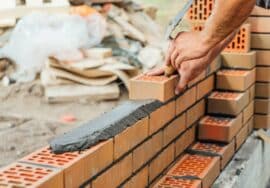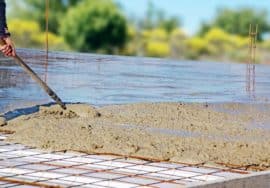
Becoming a Freelance Estimator: How to Make Your Estimates Count
Introduction
Estimating is a crucial part of any construction project, but finding the right person for the job can be a challenge. As a freelance estimator, you can take advantage of the high demand for accurate and reliable estimates and build a successful career in the field.
But what exactly is a freelance estimator, and how do you become one? In this guide, we’ll explore everything you need to know to kick start your career as a freelance estimator, from the necessary skills and qualifications to the best practices for landing and completing estimating projects.
What Is a Freelance Estimator?
A freelance estimator is a self-employed professional who provides estimating services to construction companies and contractors on a project-by-project basis. Freelance estimators work independently, often from home, and typically have multiple clients at any given time.
The role of a freelance estimator is to analyze project specifications and requirements, assess the cost of labor and materials, and provide accurate estimates for the project’s overall cost. The accuracy of these estimates is crucial, as they determine the project’s budget, timeline, and profitability.

How to Become a Freelance Estimator
If you’re interested in becoming a freelance estimator, here are the steps you should follow:
Step 1: Acquire the Necessary Skills and Qualifications
To become a successful freelance estimator, you need to have a solid foundation in construction estimating principles. This includes:
- A bachelor’s degree from an accredited institution in construction management or a related area.
- Strong knowledge of construction materials, methods, and technologies.
- Experience in reading and interpreting blueprints and specifications.
- Expertise in using estimating software and tools.
- Excellent communication and negotiation skills.
- Attention to detail and accuracy.
Step 2: Build Your Portfolio
Before you can start landing estimating projects, you need to build a portfolio that showcases your skills and expertise. This can include:
- Examples of past estimating projects you’ve completed.
- Testimonials from satisfied clients.
- Highlight your success stories including case studies.
- A professional website which showcases your portfolio and the services you offer.
Step 3: Network and Market Yourself
To find clients and land estimating projects, you need to actively network and market yourself. This can include:
- Attending industry events and conferences.
- Joining professional associations and organizations.
- Building relationships with potential clients and contractors.
- Creating a strong online presence through social media and other platforms.
Step 4: Bid on Projects
Once you have a solid portfolio and network, you can start bidding on estimating projects. To increase your chances of winning a project, you should:
- Conduct a comprehensive research of the client and their requirements.
- Provide a detailed and accurate estimate.
- Ensure to highlight your unique selling points and competitive advantages.
- Be flexible and willing to negotiate.
Best Practices for Freelance Estimators
Once you’ve landed an estimating project, it’s essential to follow these best practices to ensure your success and the project’s success:
1. Communicate Effectively
Clear and timely communication is crucial when working as a freelance estimator. You need to keep your clients and contractors informed about the progress of the project, any changes or challenges, and the estimated cost and timeline. Use a variety of communication channels, such as email, phone, and video conferencing, to ensure that everyone is on the same page.
2. Stay Organized
Estimating projects can quickly become complex and overwhelming, so it’s crucial to stay organized. Keep detailed records of all project-related information, such as specifications, contracts, change orders, and invoices. Use project management software or tools to help you stay on top of deadlines and deliverables.
3. Be Accurate and Thorough
The accuracy and thoroughness of your estimates are essential for the project’s success. Take the time to analyze the project’s requirements and specifications carefully, and be sure to factor in all costs, including labor, materials, and overhead. Avoid making assumptions or taking shortcuts, as this can lead to inaccurate estimates and cost overruns.
4. Manage Risks Effectively
Construction projects are inherently risky, and it’s essential to manage these risks effectively as a freelance estimator. Identify potential risks, such as weather, labor shortages, or material delays, and develop strategies to mitigate them. Keep your clients and contractors informed about any risks or challenges that arise, and work collaboratively to find solutions.
5. Provide Excellent Customer Service
As a freelance estimator, your reputation is everything. Providing excellent customer service can help you build strong relationships with your clients and contractors and lead to repeat business and referrals. Be responsive, professional, and respectful in all your interactions, and go above and beyond to meet your clients’ needs and expectations.
FAQs: Common Questions About Freelance Estimators
Q: How much can freelance estimators earn?
A: Freelance estimators’ earnings can vary widely based on their experience, expertise, and the type of projects they work on. However, freelance estimators can typically earn anywhere from $50 to $200 per hour, depending on their market and the complexity of the project.
Q: Do freelance estimators need to be licensed or certified?
A: There are no specific licensing or certification requirements for freelance estimators. However, many employers prefer or require candidates to have a bachelor’s degree in construction management or a related field, as well as experience in estimating and project management.
Q: How do freelance estimators find clients?
A: Freelance estimators can find clients through a variety of channels, including networking, marketing, online platforms, and job boards. Building a strong portfolio and reputation is key to attracting clients and winning projects.
Conclusion: Start Your Freelance Estimating Career Today
Becoming a freelance estimator can be a lucrative and rewarding career choice for those with a strong background in construction and estimating principles. By following the steps outlined in this guide, you can build a successful freelance estimating business and provide invaluable services to construction companies and contractors.
Remember, the key to success as a freelance estimator is to be accurate, thorough, and professional in all your interactions. Keep your clients’ needs and expectations at the forefront of your mind, and always strive to exceed them. With hard work, dedication, and the right skills and qualifications, you can make your estimates count and build a thriving freelance estimating career.











